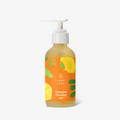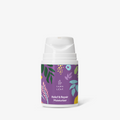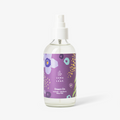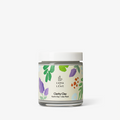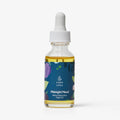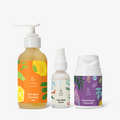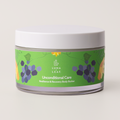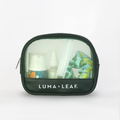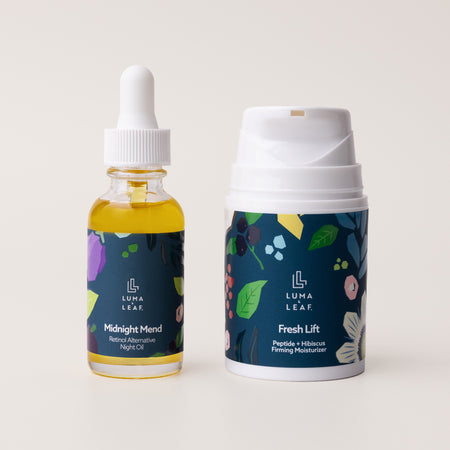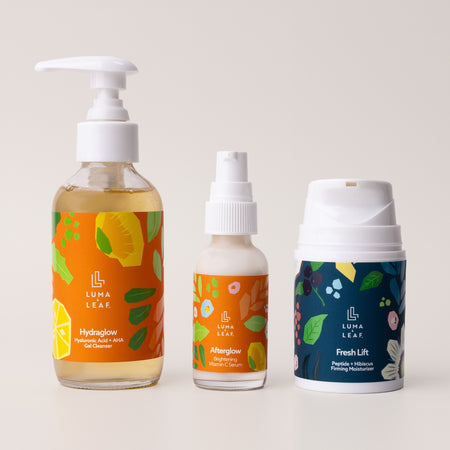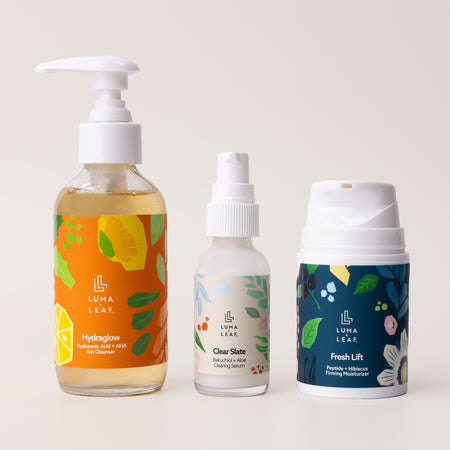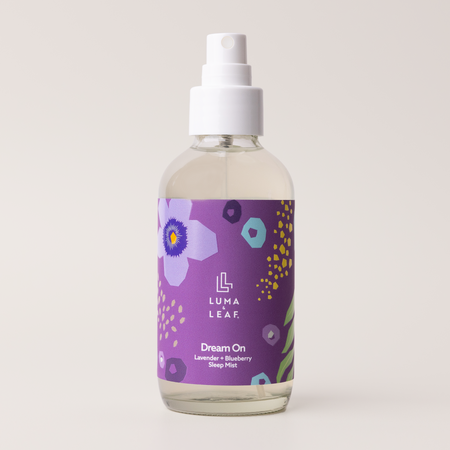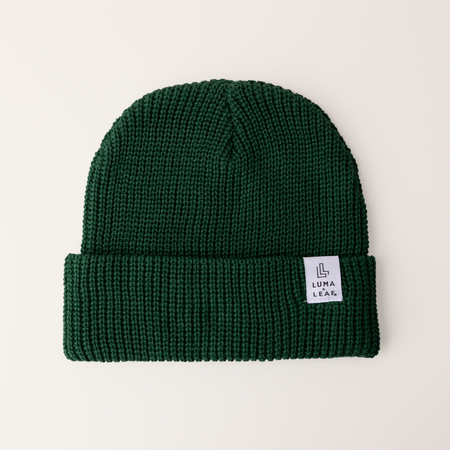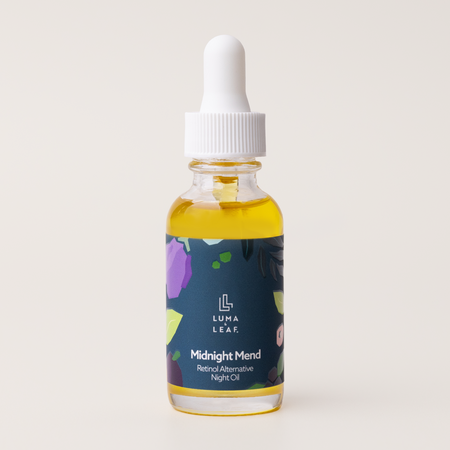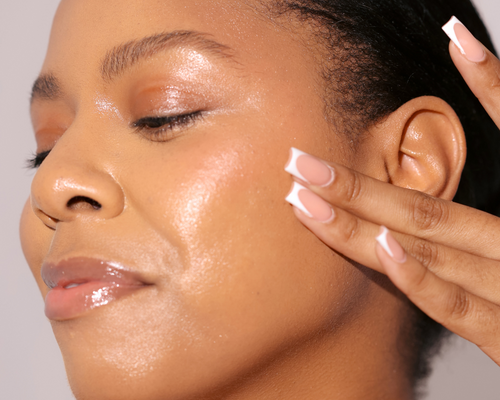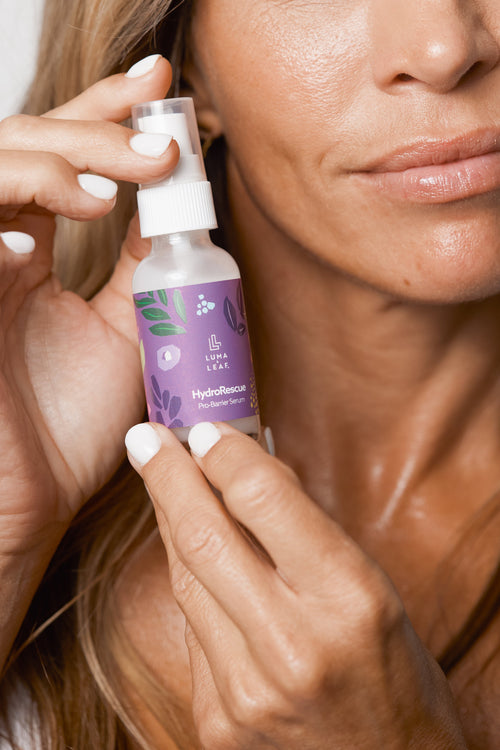
Is fragrance in skincare the worst? Are essential oils likely to sensitize and irritate skin? This hot topic is not necessarily black and white.
By now, you know there’s no one-size-fits-all when it comes to skincare. You know your skin best, what it can handle, what it can’t, and what your skincare experience end goal is. However, understanding where scent comes from in a product and how it could affect your pretty face is crucial to ensure you make good decisions for your skin. We’re digging deep to break down why fragrance in skincare could be a cause for concern.
Why is Fragrance in Skincare Even a Thing?
We know what you’re thinking - why can’t skincare be fragrance-free? Because we are all about keeping it real with you, we’ll be honest. Sometimes skincare ingredients just don’t smell good. We learned that firsthand when formulating our Luma & Leaf products.
Not only do natural ingredients not always smell like the flowers they’re derived from, but adding fragrance, artificial or not, can be harmful. People with inflammatory skin conditions like eczema, psoriasis, acne, or rosacea may see their condition worsen from artificial fragrance in their skincare. However, products that use small quantities of essential oils could still give you that spa-like skincare experience (good sniffs included) with a less likely chance of irritation.
Keep reading to learn exactly what to look for when inspecting a product label.

The Difference Between Perfume & Essential Oils
Fragrance:
Most often comprised of synthetic chemicals, petroleum derivatives, and not-so-skin-friendly preservatives and dyes.
Fragrances are used in skincare due to the fact that not all scents can be made from natural ingredients. And just because the skin conditions listed above should avoid fragrance doesn’t automatically mean it has a negative effect on all skin. What works for you may not work for someone else -- and that’s skincare 101.
In general, it’s a good rule of thumb to always scan a product’s ingredient list before purchasing it. There are often unnecessary chemicals included in fragrances that can be a cause for concern, especially because the term “fragrance” is not one ingredient. Instead, this one word masks a long list of ingredients that aren’t always spelled out for you. Be cautious if your skin has a sensitive history.
Look for: The keywords “Fragrance” or “Perfume” on the ingredients list. Also, the scent profile is another sure sign that there are these not-so-good ingredients hidden inside. If the scent of the product is similar to a body fragrance or perfume, be cautious and double-check the ingredients before getting your skin involved.
Essential Oils:
Compounds extracted from plants by steam, cold-pressing, or alternative processes.
Although we’re sure you’ve heard the rumors, essential oils can be sustainably sourced, processed, and more regulated for safety than the chemicals used in fragrance. Pure and organic essential oils (that are formulated professionally) offer mild aromas that occasionally provide an added benefit to skin, like cucumber. Relax, if you have an essential oil you love using daily, keep on keeping on.
However, be on the lookout for essential oils like minty plants that have a higher chance to cause sensitivity even in low quantities. Great smells don’t always mean great benefits.
Look for: Essential oils that are labeled as “extracts,” like lavender extract for example. Also, depending on the product, these elements are typically listed lower on the ingredients list, indicating they represent only a small portion of the formula.
All in all, we can’t emphasize enough how important it is to check the labels before you purchase a product. Get familiar with your skin, figure out which ingredients might be causing flare-ups, and don’t hesitate to ask the Clean Skin Crew questions if you’re feeling discouraged. The chances are highly likely that someone in our community has gone through a similar experience and can provide you with money-saving insight. Thank us later.
